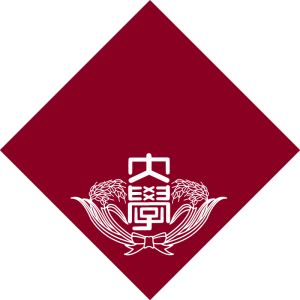 Waseda University has revoked the doctorate degree of the first author on the now-retracted Nature papers about a technique to create stem cells.
Waseda University has revoked the doctorate degree of the first author on the now-retracted Nature papers about a technique to create stem cells.
The technique — which claimed to provide a new way to nudge young cells from mice into pluripotency — was initially described in two 2014 Nature papers, both first-authored by Haruko Obokata. However, the papers were soon mired in controversy, corrected, then retracted later that year due to “several critical errors,” some of which were categorized by a RIKEN investigation as misconduct.
Shortly after Nature retracted the two papers, Waseda revoked Obokata’s doctorate degree — on a probationary basis, according to the university:
On October 6, 2014, the University, according to its Degree Guidelines, Article 23, determined to revoke the doctoral degree awarded to Ms. Haruko Obokata. However, acknowledging major faults and deficiencies in the instruction and review process by the Graduate School of Advanced Science and Engineering, a probationary period was provided, whereby the degree could be maintained, on condition that retraining in thesis writing and research ethics, and revision of the thesis were satisfactorily completed.
According to a story on Yahoo! News, which we had translated from Japanese using One Hour Translation, the concerns over her thesis centered on “plagiarism and inaccuracies”:
Obokata received her Ph.D. degree from Waseda University in March, 2011. However, when allegations of inaccuracies in her STAP paper began to emerge last February, many issues were pointed out, such as that 20 pages of her thesis, or more than one-fifth of its full text, were identical to text found on the website of the US National Institute of Health.
The university put multiple efforts into helping Obokata redo her thesis, it noted in its announcement:
Faculty, recognizing the difficulty of Ms. Obokata coming to campus, provided review of drafts and revision instructions through multiple visits to her, email and telephone calls. Ethics training was provided via a distance learning course, which Ms. Obokata completed in September 2015.
But it appears those efforts did not suffice:
However, while some revisions were submitted according to faculty instructions, the revisions did not cover the full range of instructions, and did not meet the required level for review of a completed thesis. Consequently, the Graduate School of Advanced Science and Engineering, at a steering committee meeting on October 29, 2015, decided not to refer the draft for review, and to deny Ms. Obokata’s request for extension of the probation period.
Following this determination and a consideration on October 30 by the committee of graduate deans, the probation period expired without submission of a thesis fitting of a doctoral degree (as specified on October 6, 2014). Accordingly, the University’s decision to revoke the degree has been finalized.
The reason: Obokata was “found to have obtained the degree through improper means.”
The technique Obokata presented in the retracted papers (here and here) — known as “stimulus-triggered acquisition of pluripotency,” or STAP — involved adding an acidic solution to blood cells from newborn mice.
Like Retraction Watch? Consider making a tax-deductible contribution to support our growth. You can also follow us on Twitter, like us on Facebook, add us to your RSS reader, and sign up on our homepage for an email every time there’s a new post. Click here to review our Comments Policy.
I’d like to see all Japanese universities running a plagiarism test on all MSc and PhD theses.
This is a very unfortunate outcome. The article in JapanToday states that they even provided so called “adequate supervision” during this correction phase for Obokata. Personally, I question the supervision provided because not only were the 20 plagiarized pages missed in 2011 by an entire PhD committee at Waseda University (did they have an external examiner?), but this second time around, four years later, even with the “adequate supervision” the dissertation was still flawed.
So the system has failed this trainee not once, but twice.
I would like to know who read her dissertation in 2011.
http://www.japantoday.com/category/national/view/obokata-criticizes-wasedas-decision-to-revoke-her-doctorate
Charles Vacanti was on the PhD committee. Here’s what he has to say about the thesis review: “I was not presented with or asked to read a copy of her dissertation.” (http://www.nature.com/news/stem-cell-method-faces-fresh-questions-1.14895)
Thank you for reminding me about this article from 2014 (http://www.nature.com/news/stem-cell-method-faces-fresh-questions-1.14895). Quote from the article: “Moreover, Vacanti, who was listed on the thesis as a member of the examination committee that approved it, told Nature News: “I was not presented with or asked to read a copy of her dissertation.”” In the midst of all the investigations and media reports I did not realize that Charles Vacanti was listed as an external committee member but never actually utilized as such. This only highlights the severity of the problem in response to not following proper PhD dissertation procedures (http://www.japantimes.co.jp/news/2015/11/02/national/waseda-university-strip-obokata-ph-d/#.Vj6xobcrKJA) to ensure that PhDs are rigorously marked.